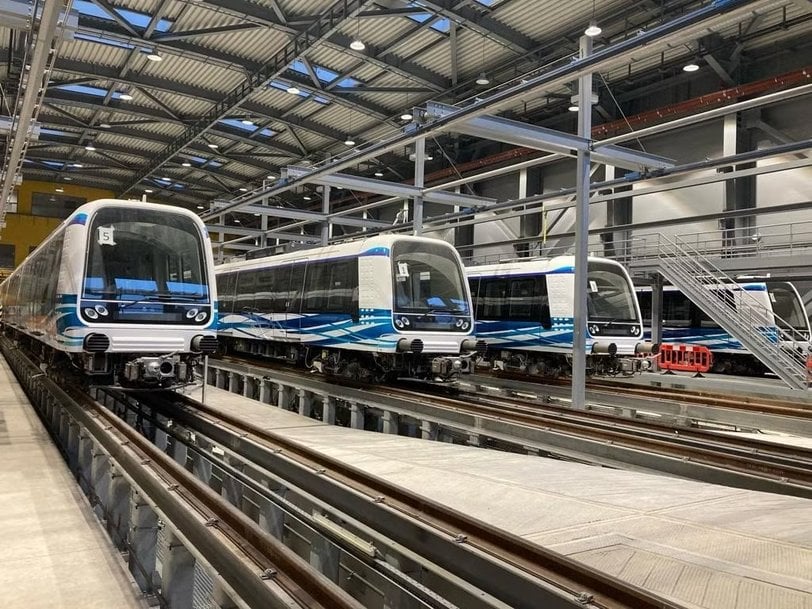railway-international.com
02
'24
Written on Modified on
Hitachi Rail delivers first driverless metro for Greece
Thessaloniki's new metro to cut 56,000 cars a day and 77,000 tonnes of CO2 annually.

Hitachi Rail delivers Greece's first ever driverless metro, as part of a contract to provide CBTC digital signalling and 33 cutting-edge metro trains.
Phase one of Greece's first driverless metro, supported by Hitachi Rail's digital signalling technology and advanced metro trains, was inaugurated in Thessaloniki. The metro entered service for the first time and is expected to cut 56,000 cars from roads daily, and 77,000 tonnes of CO2 annually.
Phase one of the new metro line covers approximately 9.6 km and includes 13 new stations. Elleniko Metro's project and financing plans envisage further development of the line, which, upon completion, will connect the city centre with the airport. An initial extension of the line is already planned and will lead to the construction of a further five stations covering an additional distance of 4.8 km.
Hitachi Rail's involvement in the project has seen it deliver its Communication Based Train Control (CBTC) signalling solution the supply of rolling stock. The first section of the metro will be served by 18 new trains, with a further 15 trains set to be added under a subsequent application contract.
The vehicles, manufactured in Hitachi Rail's Reggio Calabria factory in Italy, consist of four carriages, with an overall length of approximately 51 metres and a transport capacity of 450 passengers per train. In addition to the vehicles, Hitachi Rail's implementation of the line's CBTC based signalling systems supports enhanced service capacity, enabling trains to run safely at shorter intervals. CBTC is a modern urban signalling system that uses wireless communication between trains and infrastructure to operate metro systems more efficiently than conventional signalling. Delivery of the project has drawn upon Hitachi Rail's global CBTC expertise, including from sites in France and the United States.
The inauguration of Thessaloniki's metro marks a major new milestone in Hitachi Rail's expansion of driverless metros around the world. In recent years, Hitachi Rail has delivered autonomous solutions in a range of markets, including lines 4 and 5 in Milan, and the metros in Taipei, Lima and Copenhagen.
The metro construction work, which was built with care to enhance the history and archaeology of the area, covered the construction of a 55,000 square metres depot the Pylea area and brought to light important archaeological finds, including the discovery of a decumanus maximus. All the discoveries will be put on public display inside the metro stations.
www.hitachirail.com

